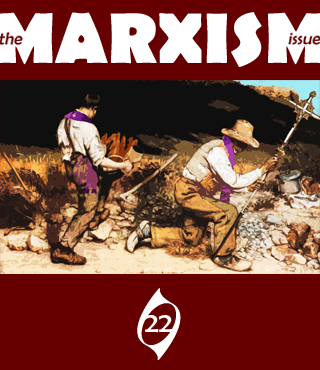
In a graduate class called “Storied New York” last spring, one of our required texts was the book Random Family, by Adrian Nicole LeBlanc. At first, I was dubious – the story seemed overwrought for overwroughtness’s sake. The first two pages introduce some of our main characters, their convoluted relationships, and drugs, and I figured that would be par for the course.
Then I realized that it was nonfiction.
The book grew progressively more heavy, and I grew progressively more depressed at the plight of these people, knowing that they are not only real, but they live in my city – and their experience is hardly an anomaly. At one point, several of the characters move up the Hudson to the small city in which I went to college. I realized that I know these people, or people like them. I used to pass them on the way from the parking lot to campus every day. Their lives seem tragic to sheltered me, and yet, they weren’t much different from other people they knew. The way some of the men treated the women was abominable, the way some of the mothers raised their children was sometimes borderline (or not so borderline) negligent, and yet often they repeated the same destructive behavior from generation to generation. (And they were in no way alone in these behaviors – one look at the news reveals that human failings do not discriminate based on socioeconomic class lines.)
And yet, Random Family doesn’t pity its subjects. LeBlanc tells the story almost detachedly, never editorializing, never judging. This is not an inspirational tale of some inner-city kid being touched by a teacher and becoming inspire to enroll at Harvard Medical School and cure cancer. Will the characters and their children ever break out of their toxic family patterns? We don’t know. This is life.
My experience with the journalistic Random Family affected me when I saw Precious: Based on the Novel ‘Push’ by Sapphire this week. Winner of the Audience Award and the Grand Jury Prize for drama at Sundance this year (along with a Special Jury Prize for Mo’nique’s performance as Precious’s downright horrifying mother), Precious tells the story of a morbidly obese teenager in the Bronx, illiterate, pregnant with her second child by her father and suffering daily physical and emotional abuse from her mother. And that’s just in the first ten minutes.
It’s not hard – but rather painful – to imagine that Precious’s story is directly based on true experiences. (Push is based on a young woman the author encountered when she taught in a literacy program in Harlem and the Bronx.) And Hollywood – and American audiences – generally go nuts for films that depict the gracious teacher or benevolent citizen swooping down into the life of those living in the underbelly of society and raising their charges to glory. It seems like the quintessential American story – perhaps for more reasons than we’d like to consider.
Precious is different. In the midst of scenes for which “horrifying” seems inadequate comes humor and grace. The terrifying moments are balanced with sincere expressions of love, hurt, confusion, and pain. The acting – from first-time actress Gabourey Sidibe as Precious to an extraordinarily de-glamorized Mariah Carey – is uniformly realistic. Few characters walk around spouting aphorisms about pulling yourself up by your bootstraps and believing in yourself; the heroic teacher is here, but it’s not simply her work that brings this all about. Precious is ultimately about Precious herself, about the unfairness of the world and the deep need humans have to be loved. And it does that all without condescension or triteness. This isn’t the story of every African-American family in the Bronx ghetto – but it is a story based in truth, and one worth telling.
I saw the film in my Brooklyn neighborhood, at a cinema that’s equal distance from my relatively upper-class brownstone block and the housing projects just on the other side of the park, a place that usually shows the most artistically excellent films that are currently released. As such, I’m generally in a crowd of vaguely hipster-ish film nerds much like myself. The concession stand sells popcorn, but it also sells espresso.
This crowd was different. I haven’t read Push, but I listened to the conversation of the two women sitting behind me; one had read Push a decade ago, and the other had read it in junior high. (!!!) They discussed how much it resembled the lives of certain acquaintances of theirs. I’m quite sure that nobody I know has lived a life like Precious’s. But these women saw true stories reflected onscreen. Throughout the film, the audience responded verbally and viscerally, crying, yelping in terror, laughing, applauding.
In a landscape where the “inspirational” film is often nothing more than a tearjerky sports movie or a rehashed and often sanitized tale, Precious is moving, and difficult – difficult because it’s a reality we’d like to ignore, about people we might like to judge, in a package we may not be ready to encounter. But it’s well worth your while.
Added note: the New York Times ran an interesting piece right after I published this one on the reaction within the African-American community (as well as the academic community) to the movie. As a white upper-middle-class woman living in a historically black neighborhood, I find this diversity of reactions pretty interesting.
